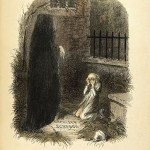Assumptions and Presumptions
As most students at Eckstein are frantically and diligently studying to ensure we put forth our best efforts during this finals period, I can’t help but think about the certain “presumptions” built into our institution of law. Numerous assumptions and presumptions are used in many different areas of law, but they seem to be accentuated when looking at the Federal Rules of Evidence.
Let’s look at Federal Rule 801 2(b), for instance. Is it really true that a failure to respond makes for an adopted admission? Those who have had, or have, a significant other: have you ever been silent to an assertion made by your significant other? I’m assuming that, like me, you remained silent not because you wanted to tacitly give your approval of the assertion, but rather because you wanted to save the feelings of your significant other, or eliminate a needless argument. I am aware that most things that end up in court may not be so trivial, but nevertheless this example popped into my head rather quickly without much thought. I am sure that the same could be said for many others, and it is the basis of the presumption in general I find unreliable.
Let’s turn to another presumption by looking at Federal Rule 804(b)(2), the “Dying Declaration.”


